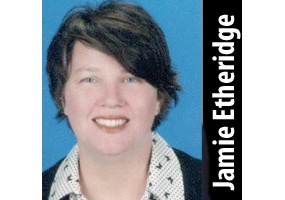

By Jamie Etheridge
opinions or editorials about life in Kuwait as an expatriate can be a tricky business. On the one hand, we earn our bread and butter here. Most of us have chosen to be here, boarded a flight, taken a job, built a life. We owe our livelihoods and in some cases our families and friends to Kuwait. On the other hand, Kuwait is no easy place for expatriates.
Over the last several years, the government has grown more unwelcoming. We are constantly reminded of the 'burden' we place on the healthcare system, on the roads, on society itself. Rarely do locals speak up for expatriates, for the business they bring, for their contributions to the economy.
And this dichotomy arises: Us vs them. Locals vs expats. Even in the newspapers, in reporting, stories mention citizens and residents. The divide is real and substantive. Citizens have rights and privileges expats do not. We might all live under the same blue sky, drink the same filtered water and suffer the same summer heat, but we are segregated and divided.
This is, of course, an oversimplification. There are Kuwaitis married to expatriates and Kuwaiti women with children without citizenship. There are many families with citizens and residents and their lives are as intermingled and as interconnected as humanly possible. But on the whole and certainly in mediaspeak, there are citizens and there are residents.
This division makes it difficult to discuss almost everything in the press. The division sets up one side against the other. Instead of addressing the continued problems of environmental damage and littering as a community issue affecting us all, it becomes a matter of teaching residents to pick up after themselves or reminding citizens to take care of their home.
When discussing school closures, the first division is public vs private, but after that, there are stories that mention 'citizens and residents', as if all our children haven't been impacted negatively by the coronavirus pandemic, the closure of schools in Kuwait since March and the online/virtual school situation.
The language we use to separate not only describes public life but seeps into our mindset, our attitudes toward one another. There are very real and fundamental differences between citizens and expatriates and these differences affect not only our interactions, but the way we experience life in Kuwait.
It also makes it harder to speak out, to speak up or to offer ideas on how to make things better. To say both what is true and also challenging. I have lived in Kuwait for much of the last 16 years and this country is my home. I love Kuwait. I love the people, the culture, the food and the way of life.
There are things I don't love about Kuwait, but as an expat, I always hesitate to say this. To say what I don't love, to offer up any criticism of the system or the way things work here, to point out the injustices - even the most blatant ones - and inequalities are certain to provoke a well-trotted out response: "Go home if you don't like it here."
It is difficult to argue with that. Except it isn't. Because anyone who bothers to criticize usually does so from a desire to see things better. I work and contribute to Kuwait and I want to see Kuwait thrive, flourish, develop and grow. But who am I, a resident, to offer ideas? Visions are funny things. When they are open and inclusive, they can blossom and prosper. But when they are narrowed, when they are exclusive, they also, by default, limit the potential.



